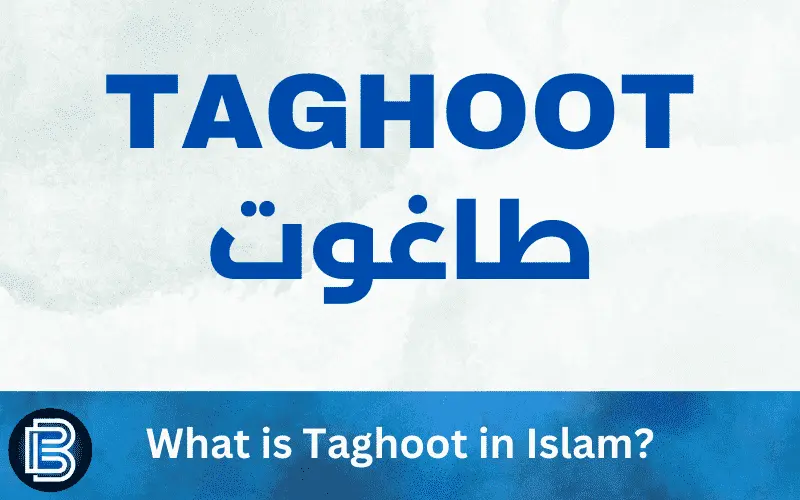What is Meant by Taghut? Islamic Point of View about Taghoot?
Have you ever encountered the word “taghut” while reading about Islam? It’s a term that pops up frequently, but what exactly does it mean? Buckle up, because we’re diving into the world of taghut and understanding its significance in Islam.

‘Worship Allaah alone and avoid the Taaghoot (false deities).”
[Surah An-Nahl: 36]
Breaking Down the Basics
The word “taghut” originates from the Arabic verb “ta-gha-ya” which translates to “to overstep” “to transgress” or “to rebel“. In Islamic terminology, it refers to anything or anyone that oversteps their boundaries and demands a level of worship or devotion that rightfully belongs only to ALLAH (GOD).
Beyond Idols: The Expanding Definition of Taghut
Traditionally, scholars interpreted “taghut” mainly as idols or false deities worshipped in pre-Islamic times. But the concept goes way deeper. Here’s how the meaning has evolved:
Tyrannical Leaders:
False Ideologies:
Destructive Desires:
Why is Taghut Important in Islam?
The concept of “taghut” is fundamental to Islamic theology. It emphasizes the core principle of monotheism – the belief in one God. Muslims are called upon to actively identify and reject all forms of taghut in their lives, ensuring their worship is directed solely towards ALLAH.
Learn about: The Meaning of Tāghūt According to the Early Scholars
Who are Taghut? Taghoot Criteria
Worship or Desire for Worship:
Demanding Obedience Above God:
Claiming Divine Attributes:
Misleading People away from ALLAH:
Excessive Focus on Worldly Desires:
Conclusion
The “right path” here refers to the religion of Muhammad (S.A.W.), while the “wrong path” refers to the religion of Abu-Jahl. The “firmest handhold” refers to the testimony that there is no deity worthy of worship except Allaah (Laa Ilaaha illallaah). This testimony consists of a negation and an affirmation. It negates all types of worship from those worshipped besides ALLAH while affirming all types of worship done for ALLAH alone, free from any partner.
And verily, We have sent to every nation a Messenger (proclaiming): “Worship Allah and reject the Taghut (idol)”.
(16:36 Quran)
